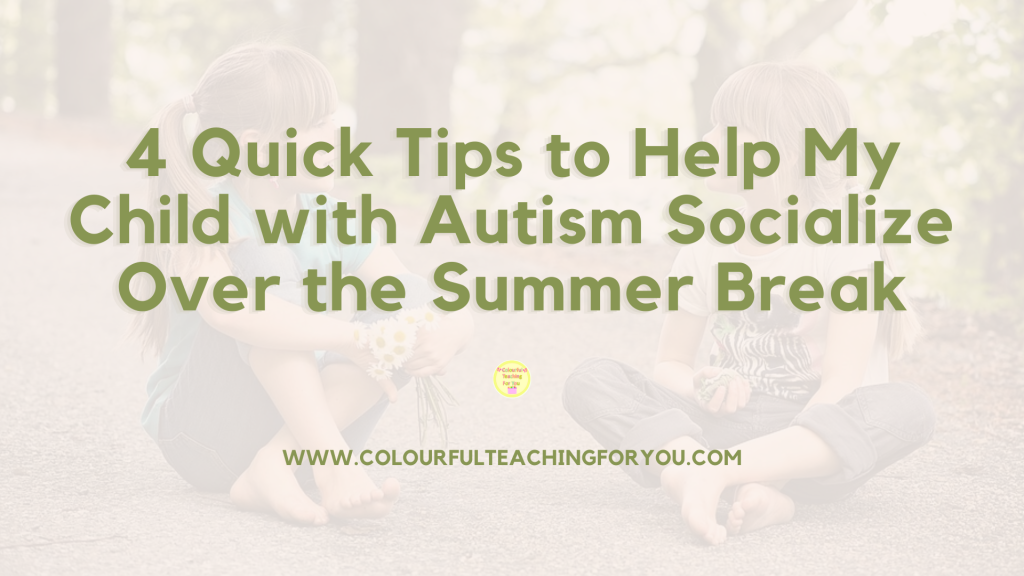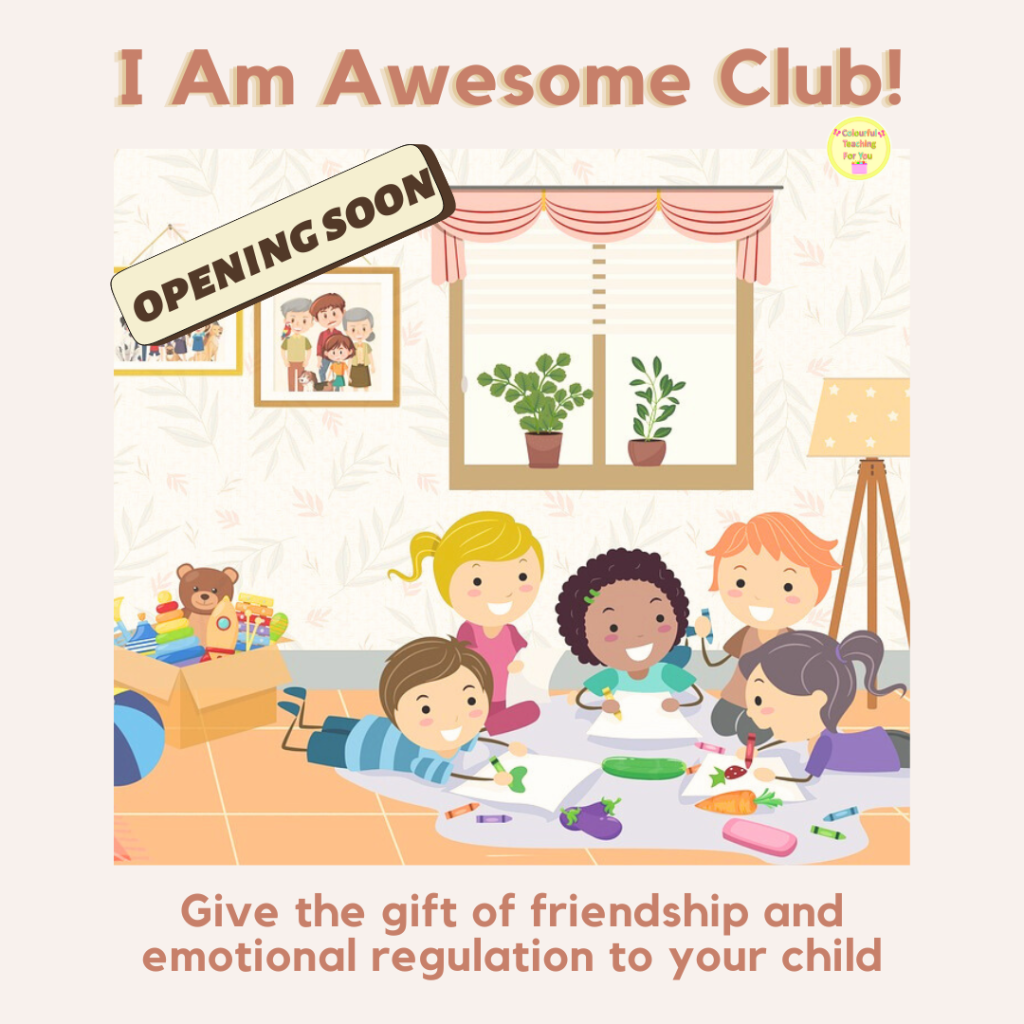Making and maintaining friendships aren’t easy for many children with autism. Socializing them over the summer break is a great way for them to make new friends instead of feeling isolated from their school friends. It also builds confidence and keeps their social skills fresh so that they know how to interact with their peers.
Additionally, socialization allows children to develop a sense of connection, helps them with emotional regulation and gives them a feeling of belonging.
As they feel more confident in their ability to make friends, they’ll gradually feel less anxious and begin to have fun.
Learning these skills will make transitioning back to school so much easier as they won’t have to worry about how to make friends or what to say to their classmates. You’ll have already provided them with the tools they need to be successful.
You can help your child socialize in the following four ways.
Actionable Steps:
#1. Teach The Words
Teach your children the words they need to know in order to approach new people or those who they already know. Have them practice the specific phrases a few times. If you are looking for exact phrases to teach your child, check out the following links and they can learn with me.
- Check out my Social Stories Playlist where I will teach your children how to interact with people in different situations and how to make friends.
- Subscribe to my channel so that you are always in the loop when I upload new videos.
- You can also check out additional resources like activity packs or join us inside the I Am Awesome Club.
#2. Role Play
Use the scripts from step 1 and the role playing scenarios from my Activity Packs to help your children practice how to greet their friends, take-turns playing and talking, how to ask friends what they want to play and what to say.
Practice these scenarios a few times. You can use puppets at first and then role play with your children until they feel ready for the following two steps.
#3. Start With The Familiar
Many children with autism are anxious about talking to strangers. Set up playdates with their friends during the summer break and review what they can say to their friends when they meet them, during their playdate and what they can say at the end of it.
#4. Expand With Shared Interests
Have your children participate in activities that interest them. Teach them how to talk to other children with similar interests. This will make it easier for them to make friends as they’ll have something in common to talk about.
Recap:
Let’s recap really quickly. Today, we looked at the following:
- The importance of socializing children during the summer break.
- Four quick tips to help my child with autism socialize over the summer break: teach the words, role play, start with the familiar, and expand with shared interests.
Free Resources:
For a taste of the resources that were mentioned in step two, check out the following resource in my FREE Education Resource Library.
Teach your little ones how to make good choices with the following FREE Resource:
Next Steps:
If you found this video beneficial, would you do me a favor? Share this with your family, your friends, your loved ones, your co-workers or someone who you think could benefit from this. Thank you!
I’ll see you next Friday at 5:30pm PST.
Until I see you next time, remember to create, experience & teach from the heart.
Take care,
Charlotte
Disclaimer: I’m a teacher and a parent. I’m not a medical professional, so please don’t take this as medical advice. The advice that I provide in my videos and online are strategies that I have used in my own class or at home that have worked beautifully.



